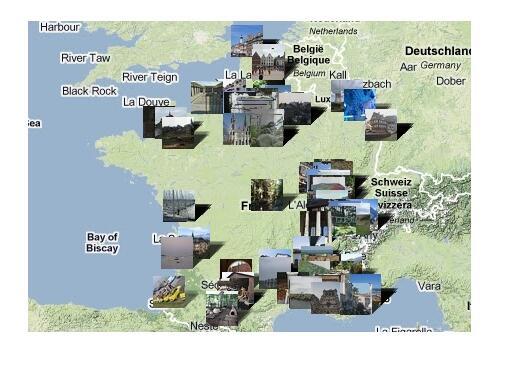French press review 2 February 2013
Greens get the jitters over fracking. Hollande touches down in Mali. And a look at Lagos.
Issued on:

Le Figaro is leading with a parliamentary report on shale gas. MPs in France are considering alternative technologies when it comes to hydraulic exploitation of the gas. This type of extraction has been banned since 2011.

Green Party member Jean-Vincent Placé tells Le Figaro that any change would place a question mark over the his party's involvement in the government. Other members of government want to study different methods of extraction used in the United States, for example, but the Greens feel this goes against the "energy transition" Hollande promised during the presidential campaign.
One of the goals was to make France less dependent on nuclear and fossil fuels. However, Industrial Renewal Minister Arnaud Montebourg suggested at the end of 2012 that it was perhaps better to produce shale gas in France than to import it. A tricky debate begins.
Libération is interested in President François Hollande's trip to Mali three weeks after the french intervention began.
Libération notes that this visit comes after claims of human rights abuse from campaign groups. Civilians are reported to have been arrested and executed by Malian troops.

La Croix gives centre stage to subsaharan African towns and Lagos in particuliar. Fashionable crowds are emerging as well as infrastructure, which the paper says highlights the fact that African towns don't necessarily urbanise in an anarchic manner.
The paper is told that Lagos is the place to be in west Africa, where everything happens and that, if you came back in 10years time, you won't even recognise it. Even the markets of shanty towns have been done up by local authorities and public transport aims to ease the city's notorious traffic jams. One computer engineer tells La Croix it now takes him "only" three hours to get to work instad of five.
La Croix also looks at the important part renewable energy will play when it comes to the development of African cities. This is particularly apparent when you know that rent is often caculated in relation to the generator that provides a home's electricity.
However, the paper does note that urbanisation across subsaharan Africa is uneven because countries don't depend on national policies to improve living conditions. People who live in the city still have to turn to the informal sector to find work because industries as a whole are weak.
Daily newsletterReceive essential international news every morning
Subscribe